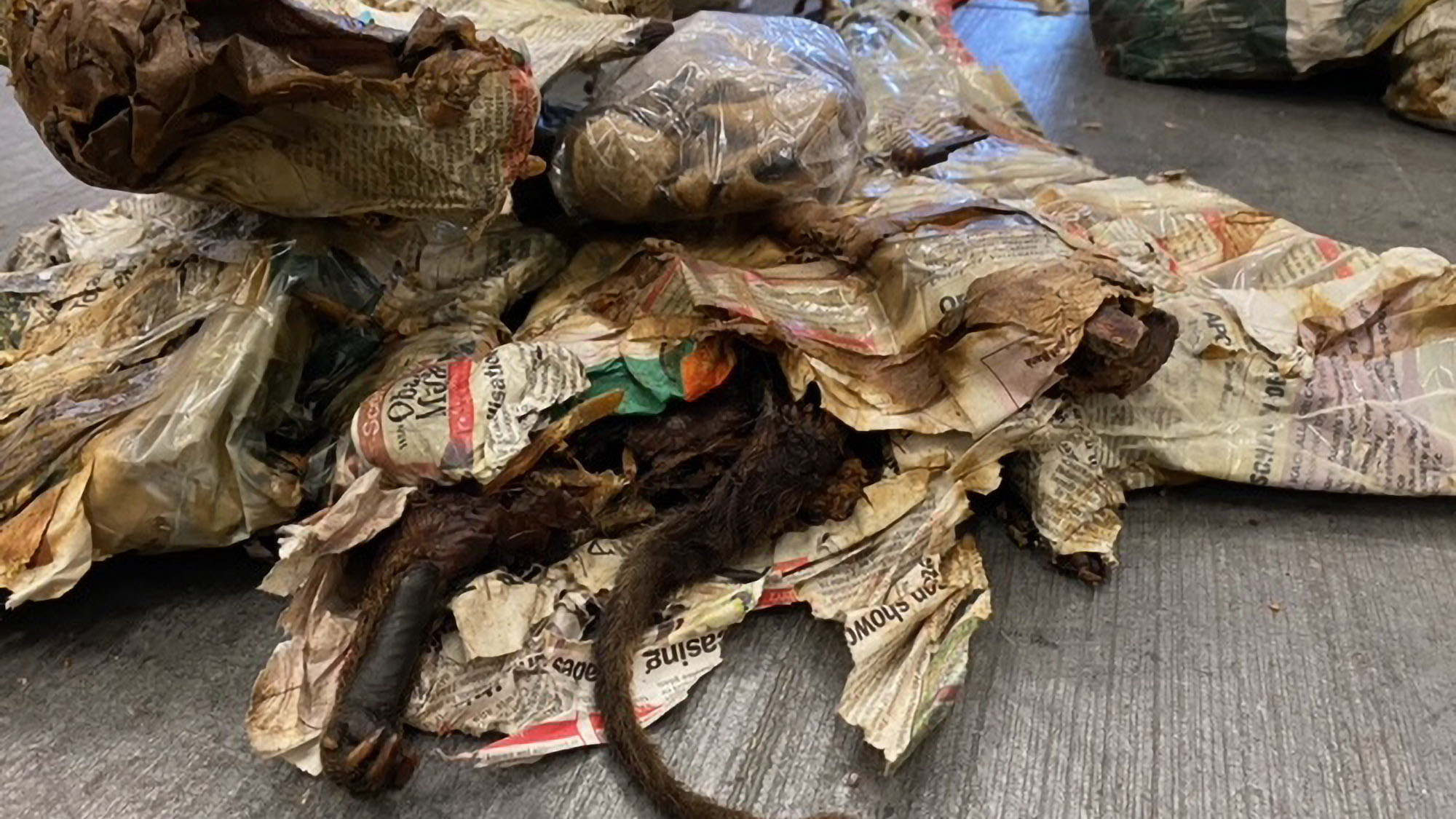German airport Customs have seized half a tonne of rotting African primate, porcupine and antelope ‘bushmeat’ infested with mold and maggots and hidden between clothes and medicine in packages from Nigeria.
The incident took place at Cologne airport in Germany and German customs said in a statement that the decaying meat from Galagos, porcupines and antelopes was “bushmeat” hunted from the jungles and savannahs of Africa and this haul came from Nigeria and had a very strong smell.
Bushmeat is primarily meat from wild animals hunted predominantly in Africa. It has long been used in local dishes and street foods and hauls are often reported at international airports, where the meat is regularly smuggled in to meet expat demand.
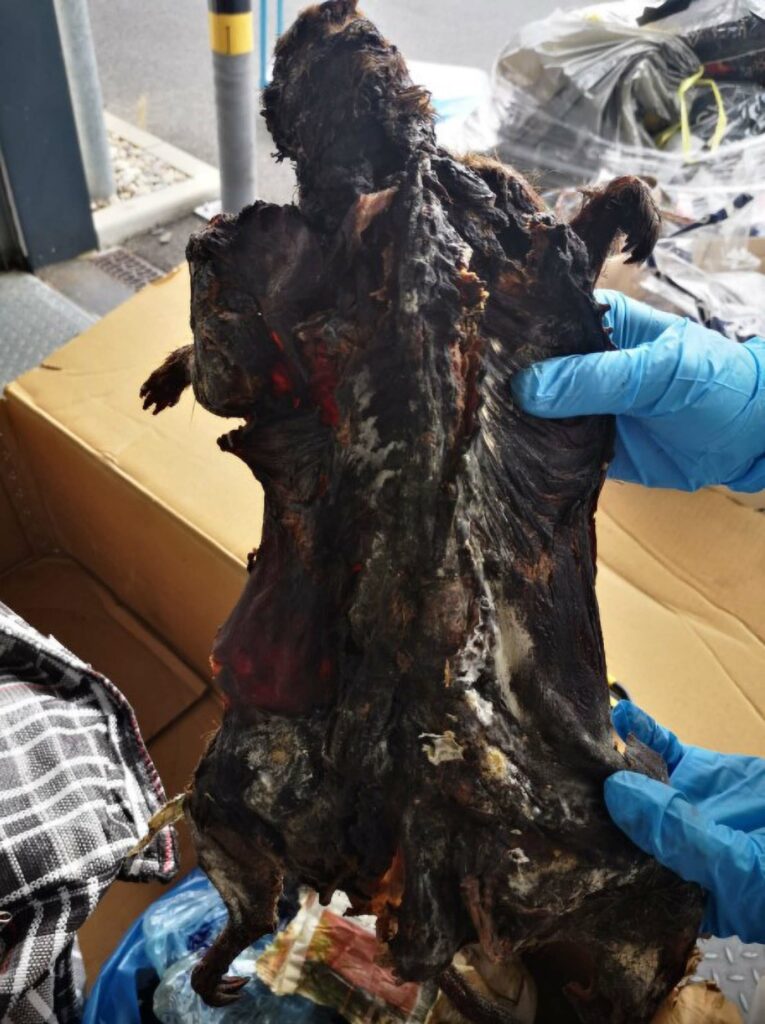
Cologne customs prevented smuggling of ‘Bushmeat’ (Galago) from Nigeria.
(Hauptzollamt Koln/Newsflash)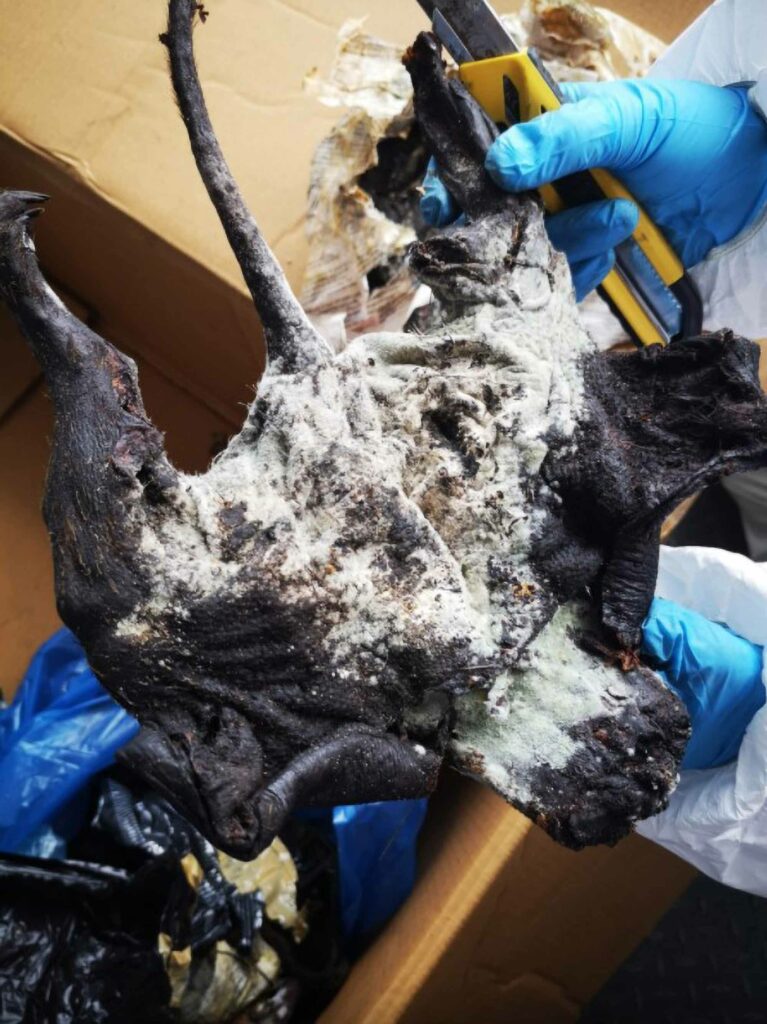
Cologne customs prevented smuggling of ‘Bushmeat’ (Galago) from Nigeria.
(Hauptzollamt Koln/Newsflash)
Jens Ahland, Press spokesman for the main customs office in Cologne, said: “In addition to four Galagos, also known as bush babies, a porcupine and an antelope, we also found large quantities of rotten fish, crustaceans, cowhides and snails. In total, we found almost half a tonne of the mostly roasted or smoked animals.”
Galagos (Galagidae), also known as bush babies, are small nocturnal primates from continental, sub-Sahara Africa.
The German customs said that 15 parcel shipments were seized weighing between 100 kilogrammes (220 lbs) and nearly 300 kilogrammes (661 lbs) and that they were on their way to private individuals in Germany, but also France and Belgium.
The spokesperson said that most of the time, all of the contents of the packages had to be destroyed as they were infested with mold and with maggots.
Ahland added: “The animal carcasses, which were only packed in newspaper and plastic bags, lay between large amounts of clothing, pharmaceuticals and cosmetic products.
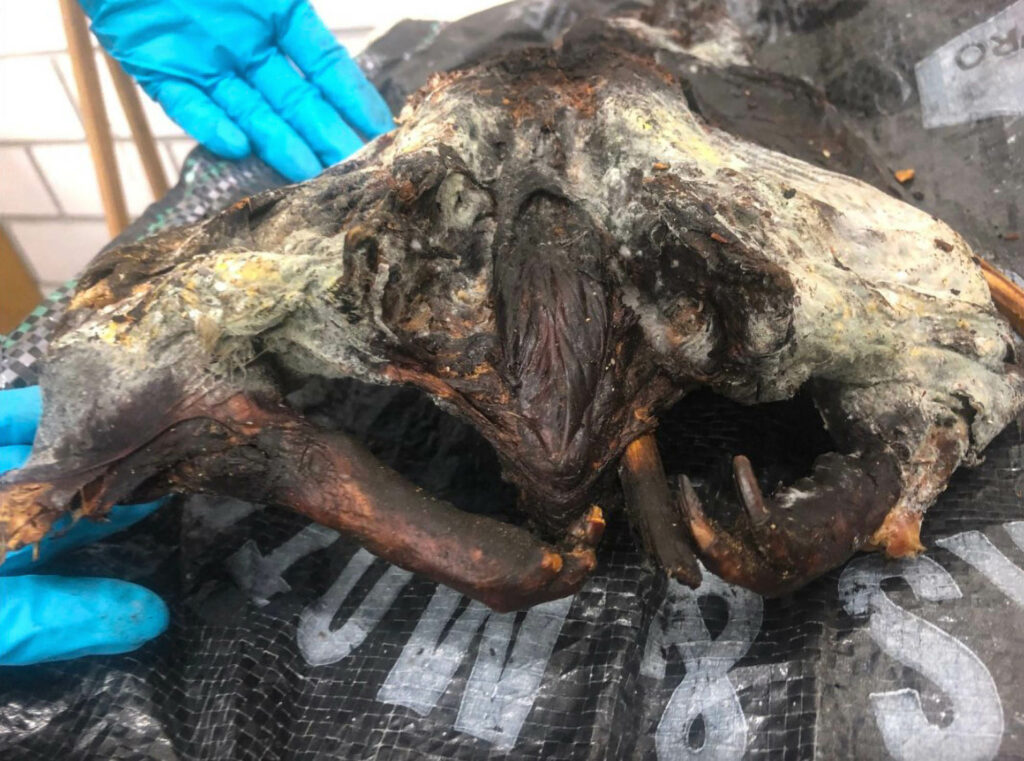
(Hauptzollamt Koln/Newsflash)
“In addition to the animal components, the complete packaging of contents often had to be ordered by the veterinarians of the Environment and Consumer Protection Office who were involved in such incidents, due to strong maggot and mold infestations.
“The airport border control point of the city of Cologne will destroy the items.”
Bushmeat is popular in many rural African communities and it is increasing in popularity as a source of food as hunting increases as a result of more roads being built.
It can pose grave health risks and has been accused of contributing to the spread of zoonotic diseases, such as Ebola via fruit bats, or the spread of HIV linked to primates, and environmental risks linked to conservation.
In an article published by the United Nations, the famous environmentalist Jane Goodall, who is also a United Nations Messenger of Peace, said: “For many wealthy African city dwellers, bushmeat is a status symbol proving that they can stay true to their culture. Some of the meat even finds its way to African communities overseas.”
She added: “It is not only wild animals whose lives are threatened by the bushmeat trade—people do not appreciate the risks to their own health. There is increasing evidence of the danger to humans caused by handling, cutting the flesh and cooking certain kinds of wild animals.
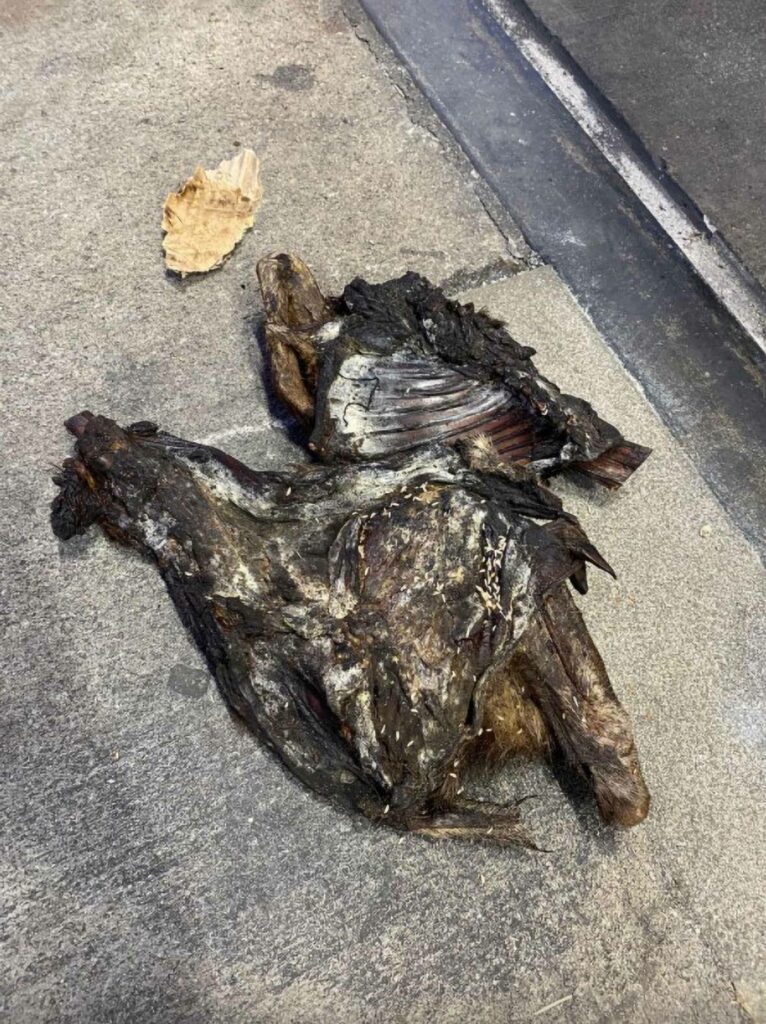
Cologne customs prevented smuggling of ‘Bushmeat’ (antelope) from Nigeria.
(Hauptzollamt Koln/Newsflash)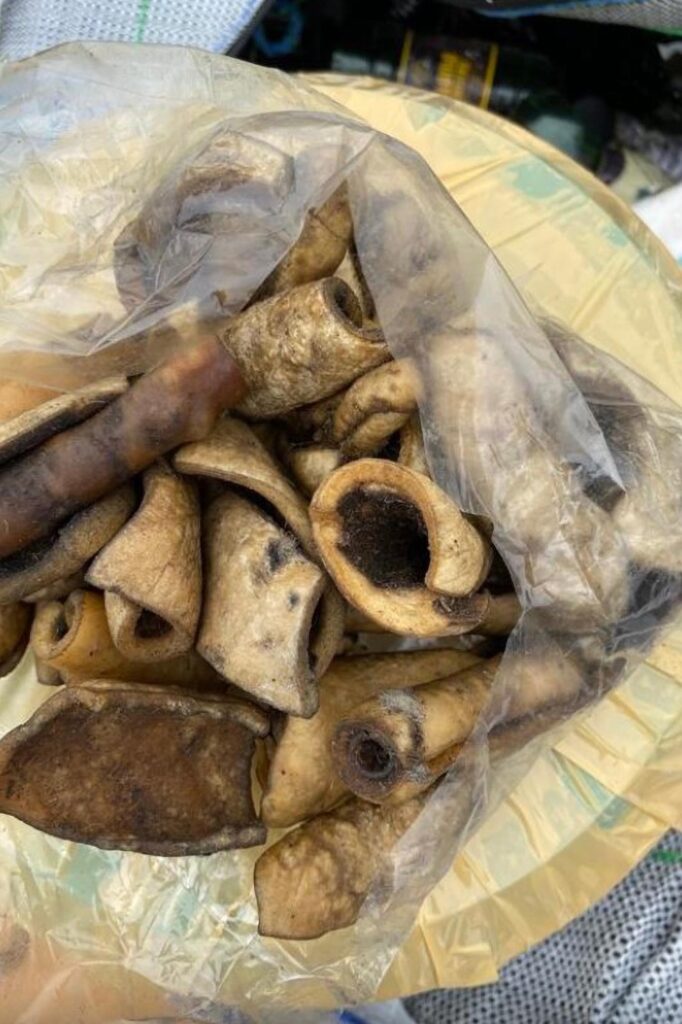
Cologne customs prevented smuggling of cowhide from Nigeria.
(Hauptzollamt Koln/Newsflash)
“The Ebola virus, devastating more and more areas of West Africa, is thought to be transmitted by fruit bats, initially to chimpanzees, gorillas and bonobos. These apes may become infected from handling fruits contaminated by bat faeces, and can then pass the disease on to humans.
“The human immunodeficiency virus (HIV-1), that causes AIDS, originated from the simian immunodeficiency virus (SIV cpz) from chimpanzees (Pan troglodytes) of Central Africa. HIV-2 originated from SIV smm found in sooty mangabeys in West Africa.”
To find out more about the author, editor or agency that supplied this story – please click below.
Story By: Joseph Golder, Sub-Editor: James King, Agency: Newsflash
The Ananova page is created by and dedicated to professional, independent freelance journalists. It is a place for us to showcase our work. When our news is sold to our media partners, we will include the link here.

